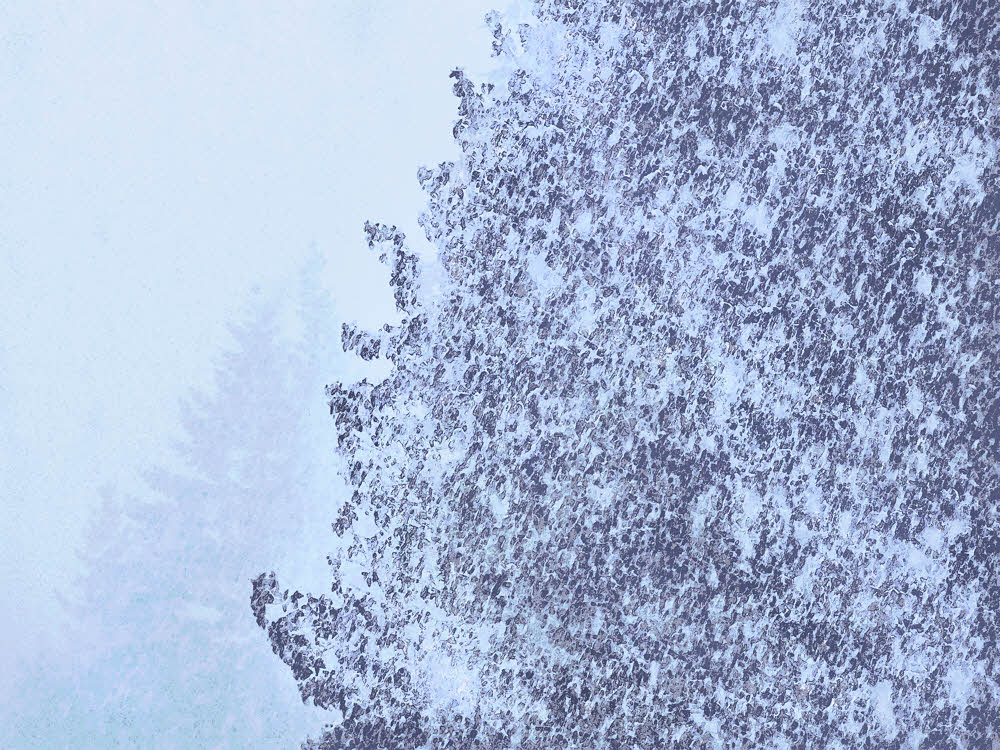
When you decide to go winter camping there are 12 things you need to keep in mind.
First, it's going to be cold. The other 11 things don't matter. The cold does. Only the cold.
Say you wake up some morning after basically shivering all night, and the only reason you got any sleep at all was because that interminable shivering exhausted you to the point that you finally passed out, and anyway you only slept about six minutes around dawn before you got painfully cold again and started shivering all over. Again.
So say you wake up, and decide to get up and get the hell out of there and go home, but you discover that your butt is frozen to the ground and you can't move. You have two choices. Force it, and leave a lot of your ass still attached to your campsite, or wait for a few hours until the temperature rises enough for your remaining body heat to do some good.
Hey, I know which option I'd choose.
So there you are with your rump on ice, killing time. With nothing else to do you begin to notice things. Small things. Things you ordinarily wouldn't notice at all, but now that you have hours to kill and a frozen keister you do notice them. Pointless things, like snowflakes. Little ice stars.
You have lots of them handy, so you decide to look for two that match. You learn valuable lessons from this. The main lesson is to never ever try winter camping again, but there are other lessons, like (a) what lengths you will go to when you have an infinite amount of time to kill, and (b) that snowflakes are made of ice (you should have known this but somehow it didn't stick) and they melt when you breathe on them.
You also learn (while carefully holding your breath after the first few failed attempts at snowflake matching) that many, many snowflakes are really, really boring. In fact there is a whole infinity of boredom in a snowflake collection because, while each and every one of them does in fact seem to be a little tiny bit different, maybe, from every other one, possibly, they aren't really all that different.
They're snowflakes. Frozen water droplets. And that's about it.
And really-truly, a bunch of them, a whole bunch, are simply flat, almost transparent six-sided crystals with no interesting detail at all, star-shaped or not.
And while some may be feathery and intricate, once you've seen the first dozen or so you can't remember if the first one is actually any different from the one you're looking at now. At all.
And feathery? How important is that anyway? Feathery? What does it even mean, feathery?
The only good news, if there is any, is that these teensy starry icy things form when the air temperature is between 3°F and 10°F (-12°C to -16°C), so you have a rough idea how cold the day is, if. If the flakes are falling at the time, and if you are at the altitude where they are forming. And so on.
But you don't know that now. You are frozen to the ground. You learn these interesting facts later, after you get home, sometime way long after your tushie comes unstuck and you get it the hell out of there, and even when you learn about snowflake temperatures, you realize that it's basically useless information anyway. Useless.
The only practical knowledge you can squeeze out of this situation is what you already know intuitively, just lying there with your hind end in the firm toothy grip of heartless ice, and that knowledge is that if snowflakes happen to be falling, and if you watch closely, and if you don't screw things up by breathing your dying-of-hunger stinky captive-animal breath on the fresh snowflakes, and they are melting anyway, despite your careful technique, well that means it's getting warmer, without your help.
Maybe warmer enough for you to pull your tail out of the ice and drag it to somewhere more comfortable and never try this nonsense again.
See tabs at the top for definitions and books.
Have extra info to add?
If the commenting system is out again, then email sosayseff@gmail.com
Me? Recently nominated for this year's Doofus Awards. (Next year's too.)